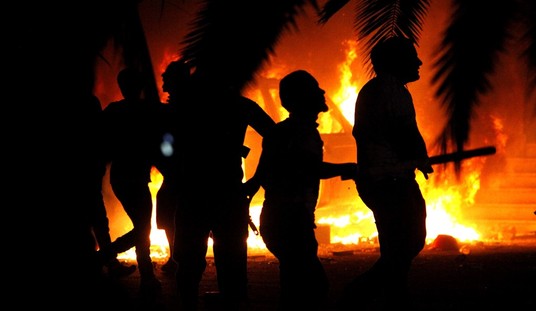Could the government of Myanmar — better known as Burma — transition back to civilian control for the first time in 50 years? The civilian opposition led by Nobel laureate Aung San Suu Kyi has apparently won a landslide victory over the party representing the military junta, but don’t count them out yet. The military has made sure of its influence, if not outright control, through the constitution now in place:
Myanmar’s ruling party conceded defeat in the country’s general election on Monday as the opposition led by democracy figurehead Aung San Suu Kyi appeared on course for a landslide victory.
“We lost,” Union Solidarity and Development Party (USDP) acting chairman Htay Oo told Reuters in an interview a day after the Southeast Asian country’s first free nationwide election in quarter of a century.
Maybe — but if so, they didn’t lose much. Even if the military allows the election to stand, Suu Kyi cannot serve as the head of state, thanks to restrictions imposed by the constitution. She will have to serve as the power behind the new executive instead, which Suu Kyi expressly pledged to do during the election. Even beyond that, as NBC News reports, the military’s constitution all but ensures that the new government had better play ball:
The military-drafted constitution guarantees one-quarter of parliament’s seats to unelected members of the armed forces. … It is guaranteed key ministerial positions, the constitution gives it the right to take over the government under certain circumstances, and it also has a grip on the economy through holding companies.
In other words, nice democracy you’ve got there … shame if anything happened to it. If Suu Kyi steps too far out of line, the military can either use their economic power to discredit her and her opposition party, or simply conduct another coup d’etat and assume power directly. Suu Kyi has been in this position before; she won the 1990 election that the military junta called after two years in power, but the junta discarded the election and confined Suu Kyi to house arrest. She only won her release in 2010, one year before the junta installed a puppet civilian government in an attempt to mollify the Burmese.
The test will be when, or perhaps if, Suu Kyi and her governing party attempt to reform this corrupt constitution and restore civilian control over the military. If no attempt is made, then Suu Kyi’s government will almost certainly end up a puppet of the military, which seems untenable for Suu Kyi. If she tries to reform the constitution, can the popular mood break the military’s grip on power? The election was just the first step. Myanmar, or Burma if one prefers, has a long road to walk to freedom.








Join the conversation as a VIP Member